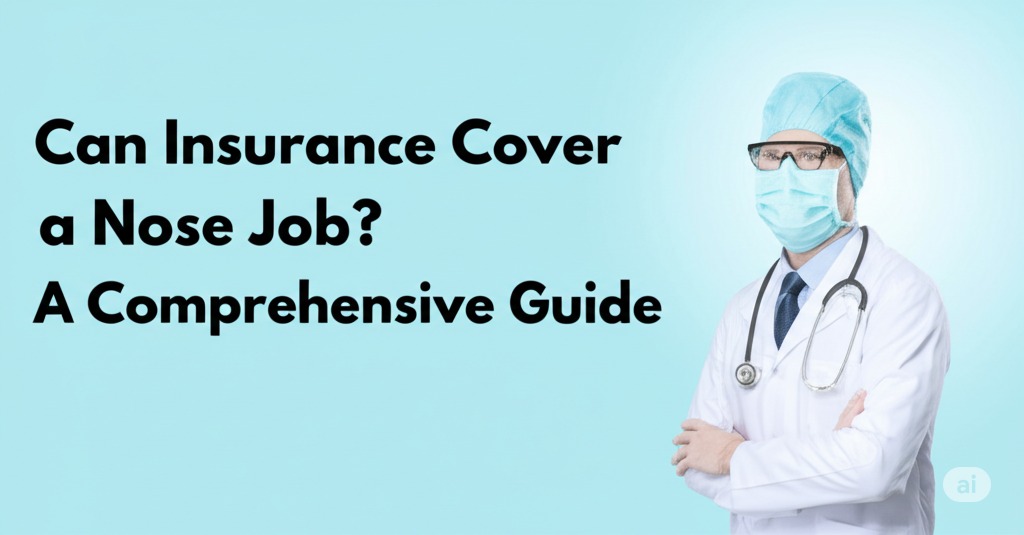
When it comes to cosmetic procedures, one of the most frequently asked questions is whether insurance will cover the cost of a nose job, also known as rhinoplasty. For those considering this procedure, understanding the circumstances under which insurance might foot the bill is crucial. This article will break down the different factors that influence insurance coverage for a nose job, including medical necessity, elective surgeries, and the fine print of health insurance policies.
What is a Nose Job (Rhinoplasty)?
A nose job, or rhinoplasty, is a cosmetic surgery procedure designed to reshape the nose. People typically opt for rhinoplasty to improve the appearance of their nose, enhance facial balance, or address breathing issues caused by structural problems. The procedure can involve adjusting the nose’s size, shape, or proportions, and it can be performed for aesthetic reasons or to correct functional issues.
Types of Rhinoplasty
- Cosmetic Rhinoplasty: Primarily done for aesthetic enhancement, such as reshaping the nose to improve facial harmony.
- Functional Rhinoplasty: Performed to improve breathing difficulties caused by structural issues, such as a deviated septum.
- Revision Rhinoplasty: Done to correct or improve results from a previous rhinoplasty procedure.
Does Insurance Cover a Nose Job?
Insurance typically only covers nose job procedures when they are medically necessary. If the surgery is deemed cosmetic, meaning it’s done purely for appearance reasons, most insurance policies will not cover it. However, there are exceptions.
When Insurance May Cover a Nose Job
- Medical Necessity: If the surgery is needed to address medical issues, such as breathing problems caused by a deviated septum or nasal obstruction, insurance may cover some or all of the costs. In this case, the rhinoplasty is considered reconstructive rather than cosmetic.
- Accidental Injury: If the nose is damaged due to an accident, insurance may cover the costs of a reconstructive rhinoplasty to repair the damage and restore functionality.
- Congenital Defects: If someone is born with a nasal deformity that causes breathing problems or other issues, insurance may cover the surgery to correct the condition.
- Sleep Apnea and Breathing Disorders: If a deviated septum or other nasal issues are contributing to a diagnosed condition like sleep apnea, insurance may cover the cost of surgery to alleviate symptoms.
When Insurance Will Not Cover a Nose Job
- Purely Cosmetic Reasons: If the surgery is requested to improve the appearance of the nose without any functional or medical necessity, insurance will typically not cover the procedure.
- Cosmetic Enhancements after a Previous Surgery: If a person undergoes rhinoplasty for aesthetic reasons and then decides they want additional procedures to further refine the look, insurance is unlikely to cover this second surgery unless there is a medical issue involved.
- Non-Medically-Approved Procedures: Some procedures that might be requested are considered non-medical and purely cosmetic, such as changing the shape of the nose in a way that doesn’t impact breathing or functionality.
How to Determine If Your Insurance Will Cover a Nose Job
Review Your Insurance Policy
The first step is to carefully review your health insurance policy. Look for specific details about cosmetic procedures, reconstructive surgery, and medical necessity. Policies vary from one provider to another, so knowing the specifics of your plan is essential.
Consult with Your Doctor
A doctor or surgeon can help determine whether your procedure qualifies as medically necessary. They can also provide documentation, such as medical records or diagnoses, to support your claim if you believe insurance should cover the surgery.
Get Pre-Approval
Before scheduling your surgery, it’s a good idea to submit a pre-authorization request to your insurance provider. This step will help clarify whether your insurance will cover the procedure based on the medical necessity, and it can prevent unexpected bills down the road.
Steps to Take If Insurance Denies Coverage
If your insurance company denies coverage for your rhinoplasty, all hope is not lost. There are steps you can take to appeal the decision:
- Appeal the Decision: Insurance companies often have a formal appeals process. Provide additional documentation or medical records that support the necessity of the surgery.
- Seek a Second Opinion: Sometimes, a second opinion from a different medical professional can strengthen your case for medical necessity.
- Explore Payment Plans or Financing: If insurance coverage isn’t an option, consider asking the surgeon about payment plans or financing options that can help make the procedure more affordable.
Conclusion
In conclusion, while insurance may not typically cover a nose job performed for purely cosmetic reasons, there are instances where coverage is possible—especially when the procedure is deemed medically necessary. If you’re considering a rhinoplasty for medical reasons such as improving breathing or correcting damage from an injury, be sure to consult your insurance provider and work with your doctor to determine the next steps. Regardless of your insurance coverage, be prepared to explore financing options or consider paying out of pocket if necessary.
For those wondering if insurance will cover their nose job, the answer largely depends on the specific circumstances. If you’re uncertain, it’s always best to have a candid conversation with your healthcare provider and insurance company to explore all available options.
If you are considering a rhinoplasty and need guidance on insurance, it’s important to stay informed and be proactive in understanding your coverage. Start the conversation today to ensure your needs are met, whether for cosmetic or functional reasons.
4o mini

Andre Cuevas provides career insights, job search strategies, and professional advice to help individuals navigate the job market and achieve their career goals.





